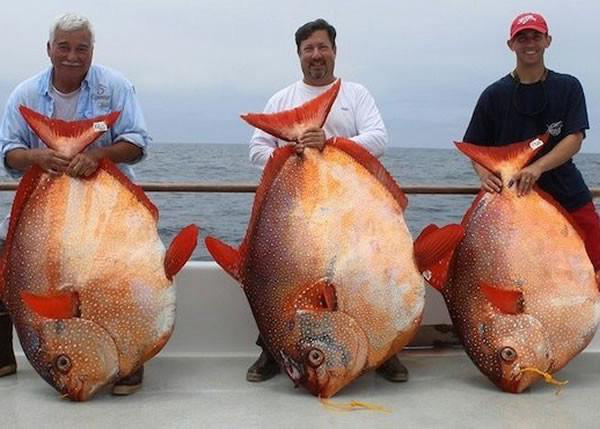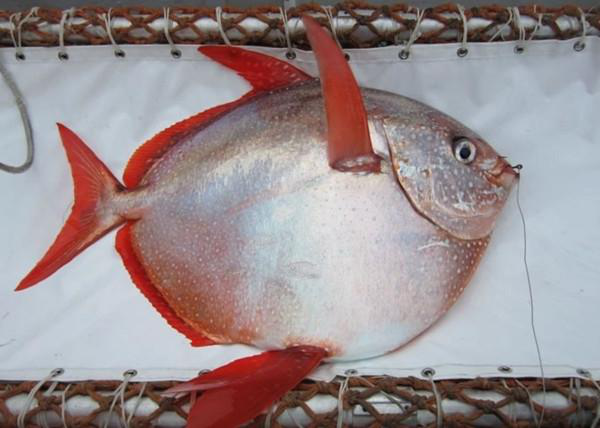In ordinary people's cognition, fish are regarded as cold-blooded animals because their blood has no temperature, but this cognition is about to be overturned, because experts from the National Oceanic and Atmospheric Administration (NOAA) recently made a statement in California. In the deep-sea research of the sea, a kind of warm-blooded fish named Opah was discovered, which is the first fish discovered by the scientific community that can activate blood and maintain a constant temperature throughout the body.

The moonfish has a rust-colored body with white spots and a pair of bright red fins. An adult moonfish is the size of a car tire. Moonfish are found all over the world's major oceans, generally living in the seabed between 50 and 400 meters. According to NOAA experts, the moonfish generates heat by constantly flapping its wing-like fins, thereby maintaining a body temperature of 4 to 5 degrees Celsius, allowing warm blood to circulate throughout the body. They also need to swim close to the water to prevent their bodies from getting too cold. Experts say this feature makes the moonfish powerful hunters in the deep sea.

Source: Sohu